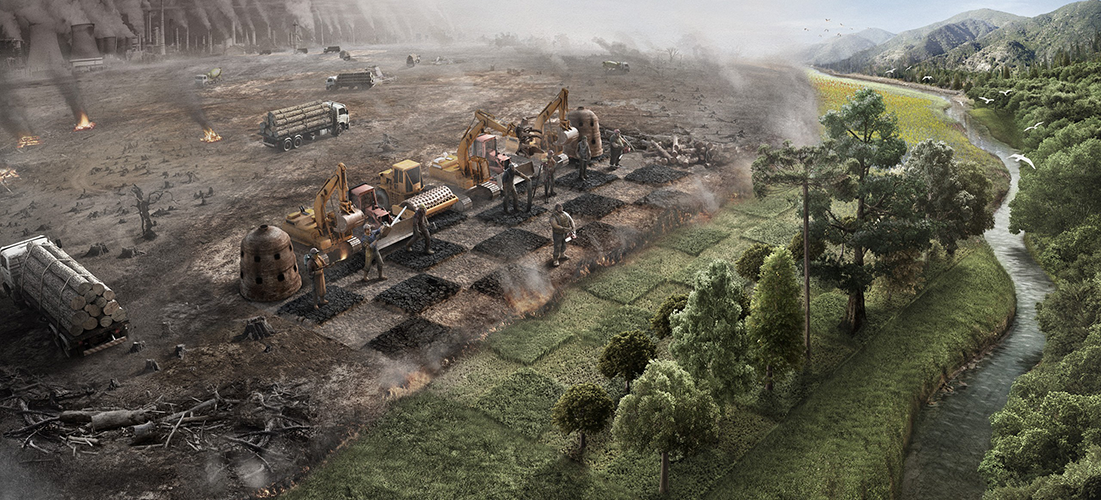Why an intervention in Syria is necessary

I am cross-posting this from my Google+ profile.
Lately I've seen a lot of posts about the Syrian conflict from people in my circles here on G+. Many of them are critical of the war. Not the two-year long civil war in the country. No, instead they are against the potential involvement of US-forces and what they see will be another costly Iraqi-style war in the Middle East. But Syria is not comparable to the invasion and occupation of Iraq.
First of all, it's not a war. It's a limited military intervention with the goal to stop, or at least deter, a dictator from killing his own people with chemical weapons. The intervention in Syria is more in line with the military interventions in Bosnia, Kosovo, Somalia, Iraq (1990-2003), and more recently in Libya. Furthermore, the United States is the major economic and military super power in the world today. And that comes with certain responsibilities and moral obligations to act against international and human rights violations - just like the crimes done by the Syrian regime. I think it's selfish and dangerously isolationistic to say that the world's richest country cannot afford to intervene and stop a genocide.
I believe that an intervention is necessary. The use of chemical weapons is a dangerous escalation of the conflict and shouldn't be downplayed. But even without that, the more than 100 000 dead, the millions of refugees and the threat to the security of neighboring countries is more than enough to justify some kind of intervention in Syria by the outside world.
Also, many people seem to hold the notion that the UN investigation will prove who is responsible for the gas attack. But the UN investigation will not be able to determine who is responsible, it can only show if a chemical attack has taken place. But considering the evidence we've seen so far it’s silly to claim that chemical weapons haven't been used by the regime in Syria. Heck, even the Syrian regime acknowledges the fact that chemical weapons have been used in the conflict. The difference is that they blame it on the rebels.
But let's say it's the rebels who are responsible for the gas attack, which despite their gains against government forces seems highly unlikely, then that would be an even worse scenario. Because it would mean that the Syrian regime and military have completely lost control of the country's chemical stockpiles and that dangerous chemical weapons could be spread to other hot spots around the world, sold to terrorists, black market arms dealers and so on. If that were the case, the response from the international community would have to be on an even larger scale and much more powerful, i.e. boots on the ground and a potential occupation of Syria to find, secure and destroy the stockpiles of chemical weapons.
Just like with Bosnia, Kosovo, Somalia, Iraq and Libya, a military intervention was necessary to end the killings. In most of these cases the intervention happened with the support of the UN and the full backing of the international community. The only reason why we haven't seen an UN-approved intervention in Syria yet is because Russia and China are effectively blocking it. Many people seem content with this. But when did China and Russia with their dreadful democracy and human rights records become our moral compass?
Considering all this, I believe that a limited military intervention by the US, and possibly also France and Turkey, is the morally right thing to do.


0 Comments
Recommended Comments
There are no comments to display.